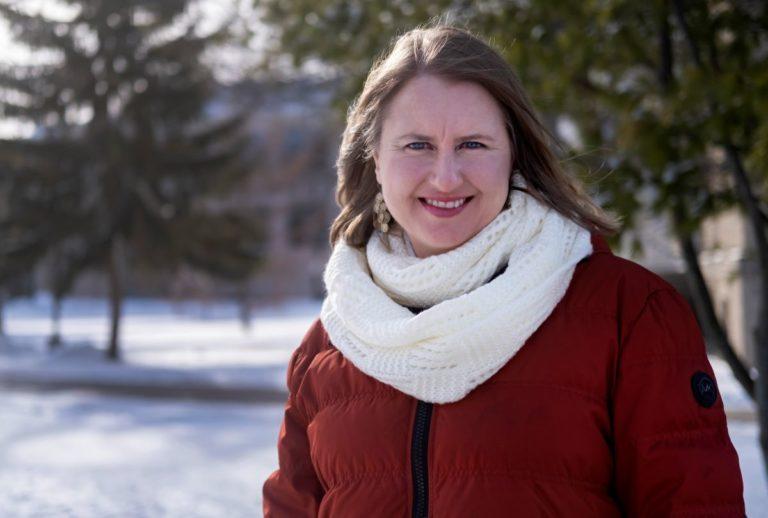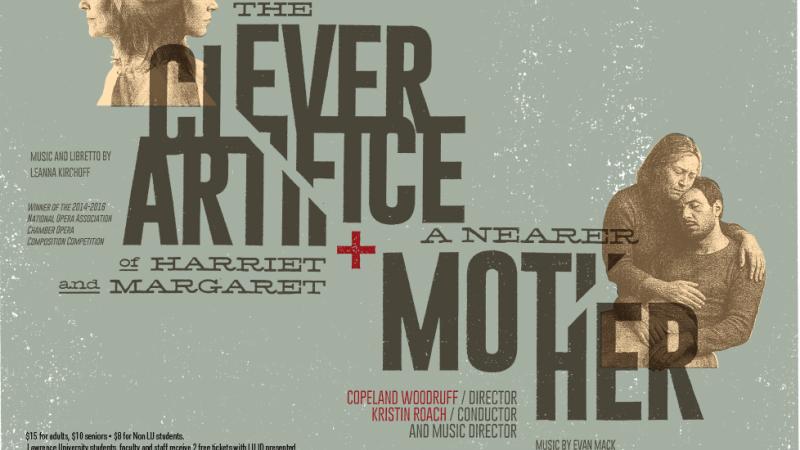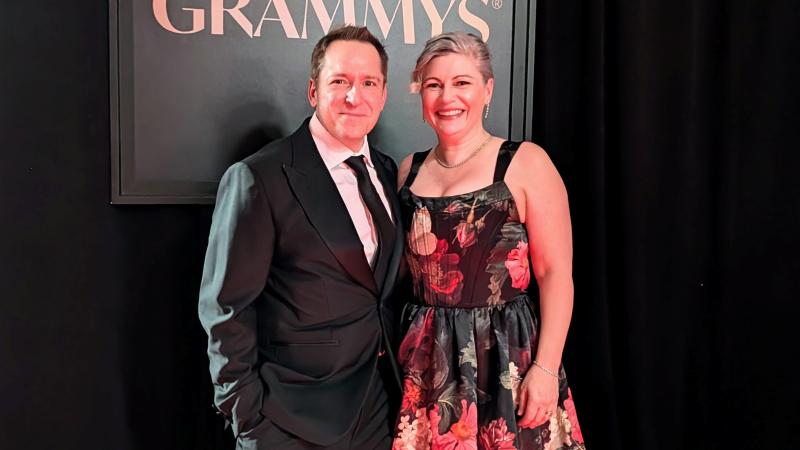About the series: On Main Hall Green With … is an opportunity to connect with faculty on things in and out of the classroom. We’re featuring a different Lawrence faculty member each time — same questions, different answers.
---
Celia Barnes, associate professor of English, has forged an impressive track record in working across departments, merging her deep interest in 18th-century literature with related subject matter in areas as seemingly far-ranging as philosophy and physics.
She’s been doing that since joining the Lawrence University faculty just over a decade ago, teaming with other faculty to present such classes as “Newtonian Lit: Chronicles of a Clockwork Universe” (physics) and “Enlightenment Selves” (philosophy).
Her love of literature was nurtured as an undergrad at the College of William & Mary, where she majored in English. But it wasn’t until her graduate school days at Indiana University that she went all in on 18th-century British literature, including women writers of that period.
Her classroom work at Lawrence earned her the 2020 University Award for Excellence in Teaching, one of three annual faculty awards presented at Commencement.
We caught up with Barnes to talk about her interests in and out of the classroom.
In the classroom
Inside info: What’s one thing you want every student coming into your classes to know about you?
That if you had told me when I was a college student and an English major all those years ago that I would be a scholar and teacher of 18th-century literature, I would have laughed in your face. As many of my students have heard—this is a favorite Professor Barnes story—in my undergrad 18th-century British lit class we never read one work by a woman. So, this period came to me by surprise years later, in graduate school, when I recognized that there was a beauty and weirdness to the literature—and that women and people of color, and not just bewigged white men, were writing it. I was hooked; the rest is history. When I tell this story to my students, I insist that they will be hooked, too, after a novel or two. And many of them are.
Getting energized: What work have you done or will you be doing at Lawrence that gets you the most excited?
Last Winter Term, I taught a class called “Samuel Richardson’s Clarissa and the #metoo Eighteenth Century” in which we read one of the longest—and, really one of the most depressing—novels in English in just 10 weeks. Clarissa is long, depressing—and it’s an epistolary novel, which is a form 21st-century readers aren’t really used to reading. I thought I would be lucky to have four people sign up for this class, but we were full, and we had such a wonderful time. The students came to class every day ready to dig in. It was one of the most rewarding teaching experiences I’ve had here, and I’m excited to offer the course again next year.
Going places: Is there an example of somewhere your career has taken you (either a physical space or something more intellectual, emotional or spiritual) that took you by surprise?
I have a small person at home, so literal travel when there isn’t a pandemic raging is limited to the annual conference trip, but I did have the opportunity to prepare, with my friend Jack Lynch at Rutgers, an Oxford World’s Classics edition of two texts that chronicle one of the most famous 18th-century vacations: Samuel Johnson’s and James Boswell’s accounts of their journey to the Scottish highlands together in 1773. The two friends went to the Hebrides together, but they both wrote up very different accounts of their trip, so both texts are fun to read and consider together. I had never prepared a student edition before, so it was certainly new territory, as it were, for me.
Out of the classroom
This or that: If you weren’t teaching for a living, what would you be doing?
Canning vegetables. Can you make a living doing that? No, seriously, I really do love cooking, baking, and preparing jams, sauces, and the like. As anyone who is a friend of mine on Facebook knows, cooking has been something that has really grounded me during the pandemic.
Right at home: Whether for work, relaxation or reflection, what’s your favorite spot on campus? And why?
I miss Andrew Commons so much. I miss eating there with colleagues and seeing students and chatting with them over lunch. I miss the wonderful staff. I miss that ridiculously delicious tofu on the salad bar. It’s really my favorite place, hands down.
One book, one recording, one film: Name one of each that speaks to your soul? Or you would recommend to a friend? Or both?
Everyone should read—or try to read, because it’s not for everyone—Laurence Sterne’s strange and wonderful novel Tristram Shandy, which is basically about a guy who is trying to tell us his life story but he’s so digressive that it takes him almost half the book before he’s finally born. Meg Pickett and I teach it in our “Newtonian Lit” course, and it’s just a transformative reading experience for some of our students. Highly recommend. But if you can’t make it to the end—it really isn’t for everyone—then Michael Winterbottom made a really wonderful film version in 2005 with Steve Coogan and Gillian Anderson. A recording? Last March, Sir Patrick Stewart began reading one Shakespeare sonnet each day, starting with Sonnet 1 and going in order, and posting his readings on Instagram. He finished in October. It’s a fabulous, fabulous series.




